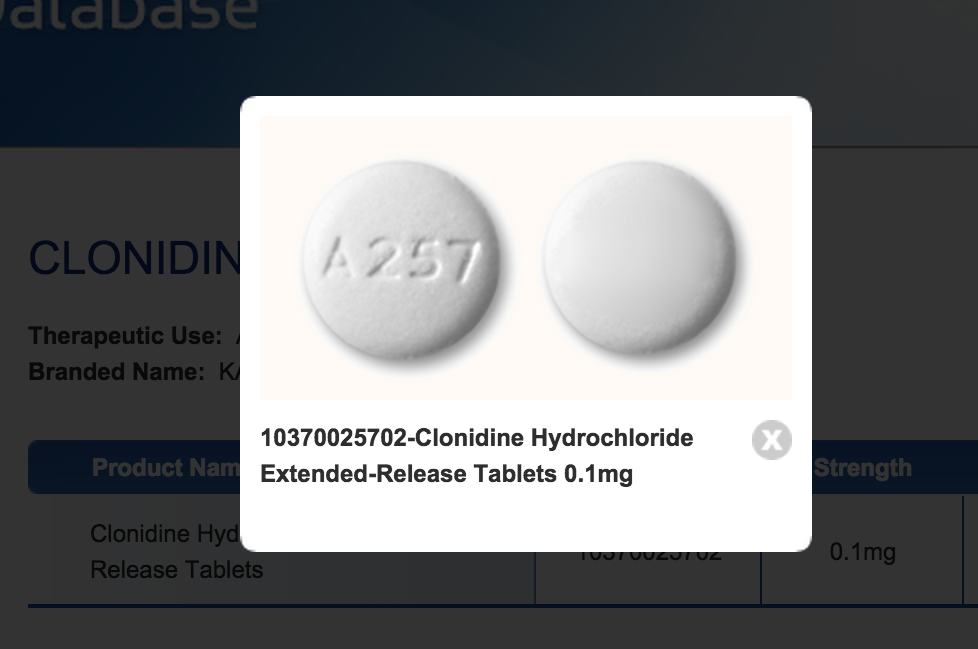Drug Companies Agreed To Not Compete, Resulting In High Price For Generic Medication

Until May 2015, Par’s generic form of Kapvay (clonidine hydrochloride) was the only generic version available in the U.S., even though Concordia also had the rights to market a competing generic.
The Federal Trade Commission recently filed a complaint [PDF] against two drug companies — Concordia Pharmaceuticals Inc. and Par Pharmaceutical, Inc. As recently as May 2015, they were the only two companies allowed to market a generic form of the ADHD drug Kapvay (clonidine hydrochloride) in the U.S.
Before the original patent for Kapvay expired in 2013, the name-brand version of the drug had been bringing in $72 million a year in the U.S. alone.
When that patent did expire, Par Pharmaceutical became the first company approved to market a generic version. That same year, Concordia acquired the rights to Kapvay, meaning it could sell both the name-brand version and a generic.
But rather than go into business against each other, the FTC says that Concordia and Par signed a “License Agreement” in Sept. 2013. This deal granted Par the rights to the original patent and any future intellectual property relating to Kapvay. Concordia also agreed to delay its marketing of Kapvay for five years and to not permit any third party to market an authorized generic version of the drug.
Thus, Par became the sole seller of Kapvay in the U.S., and Concordia received somewhere from 35% to 50% percent of the profits from the sale of the drug.
This arrangement lasted for around 14 months. After Concordia learned of an FTC investigation into the deal, it began marketing an authorized generic version of Kapvay.
“By agreeing not to compete,” reads the complaint, “Concordia and Par… reduced the number of competing generic Kapvay products available to consumers. The agreement, therefore, deprived consumers of the lower prices that occur with generic competition.”
Drug companies can argue that such payment agreements are justified if there is an overlap between the release of a generic and the expiration of a patent. But in the case of Kapvay, the FTC pointed out that Par’s generic version only came out seven days before the Kapvay patent expired, which would not justify such a substantial licensing fee. Additionally, these payments were slated to continue for five years after the expiration.
“In substance, the payments, though purportedly for intellectual property, are the mechanism for Par to share with Concordia the supra-competitive profits preserved by their agreement not to compete,” argued the FTC, which accused the companies of making a deal that “unreasonably restrained trade,” in violation of the FTC Act’s prohibition against unfair competition.
Rather than face a drawn-out challenge, both companies have reached settlement deals with the FTC.
The Concordia order [PDF] bars the Barbados-based company from enforcing the anticompetitive provisions of its agreement — including the sharing of profits — with Par.
Meanwhile, Par’s settlement agreement [PDF] prohibits the company, based in Chestnut Ridge, NY, from enforcing the provisions that bar Concordia from agreeing not to sell an authorized generic version of Kapvay.
Both companies are prohibited from agreeing with other entities to bar or delay entry of an authorized generic after the patents for the name-brand drugs have expired. They must also notify the FTC of any deals they make the restrict the entry of any authorized generic.
“By signing this agreement not to compete shortly before Concordia’s patent covering branded Kapvay ended, Concordia and Par reduced the number of competing generic Kapvay products available to consumers, depriving consumers of the lower prices that typically occur with generic competition,” said Debbie Feinstein, Director of the FTC’s Bureau of Competition.
Want more consumer news? Visit our parent organization, Consumer Reports, for the latest on scams, recalls, and other consumer issues.

